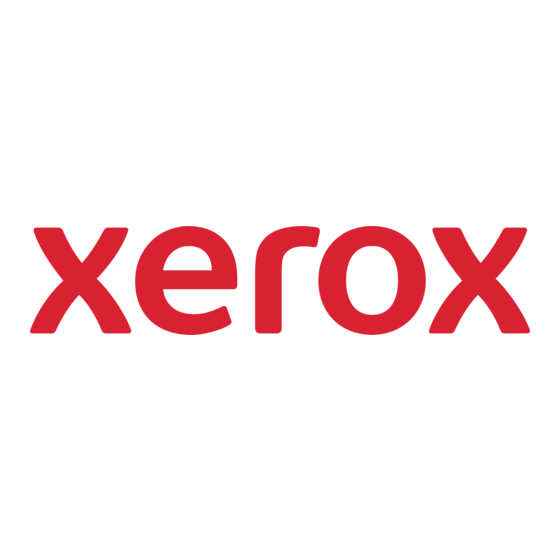Xerox 2006NPC - DocuColor Color Laser Manuel - Sayfa 3
Fotokopi Makinesi Xerox 2006NPC - DocuColor Color Laser için çevrimiçi göz atın veya pdf Manuel indirin. Xerox 2006NPC - DocuColor Color Laser 17 sayfaları. Product brochures
Ayrıca Xerox 2006NPC - DocuColor Color Laser için: Manuel (27 sayfalar), Bakım Kılavuzu (19 sayfalar), Kullanım Kılavuzu (9 sayfalar), Talimatlar (4 sayfalar)

Overview of IPX printing to the DocuColor 2006
Setting up the DocuColor 2006 is similar to setting up any other
PostScript printer on the network. The following information is useful
for experienced system administrators.
The DocuColor 2006 with IPX connections has these characteristics:
•
NetWare 3.x, 4.x and 5.x are supported directly. NetWare 4.x is
also supported through bindery emulation.
•
A minimum connection to the DocuColor 2006 consists of a
NetWare file server, a NetWare print server, and a NetWare
queue.
•
A single directory tree (for NetWare 4.x) and up to eight bindery
servers can be configured simultaneously. This limit is the same
for Ethernet or Token Ring configurations.
•
The DocuColor 2006 searches for print jobs on one NetWare print
server per bindery server.
•
Each print server can store jobs for any print connection on the
DocuColor 2006.
•
Windows 95/98 and Windows NT 4.0 workstations (whether a
Novell server is present or not) can use IPX/SPX protocols for
communicating with the printer directly or use Fiery utilities
(ColorWise Pro Tools and Fiery Link).
NetWare file servers support the creation of print queues, which are
storage areas for print jobs. When a client on a remote workstation
decides to print, the job is directed to a print queue on the NetWare file
server and spooled to the NetWare server disk, freeing up the client
workstation.
The queues on the NetWare server must be named to match the Direct
connection, Print queue, and Hold queue on the printer. The NetWare
queue names should be given one of the following lower case
extensions in English:
_print
_hold
_direct
Xerox DocuColor 2006
8. Setting up the network server
8–3
